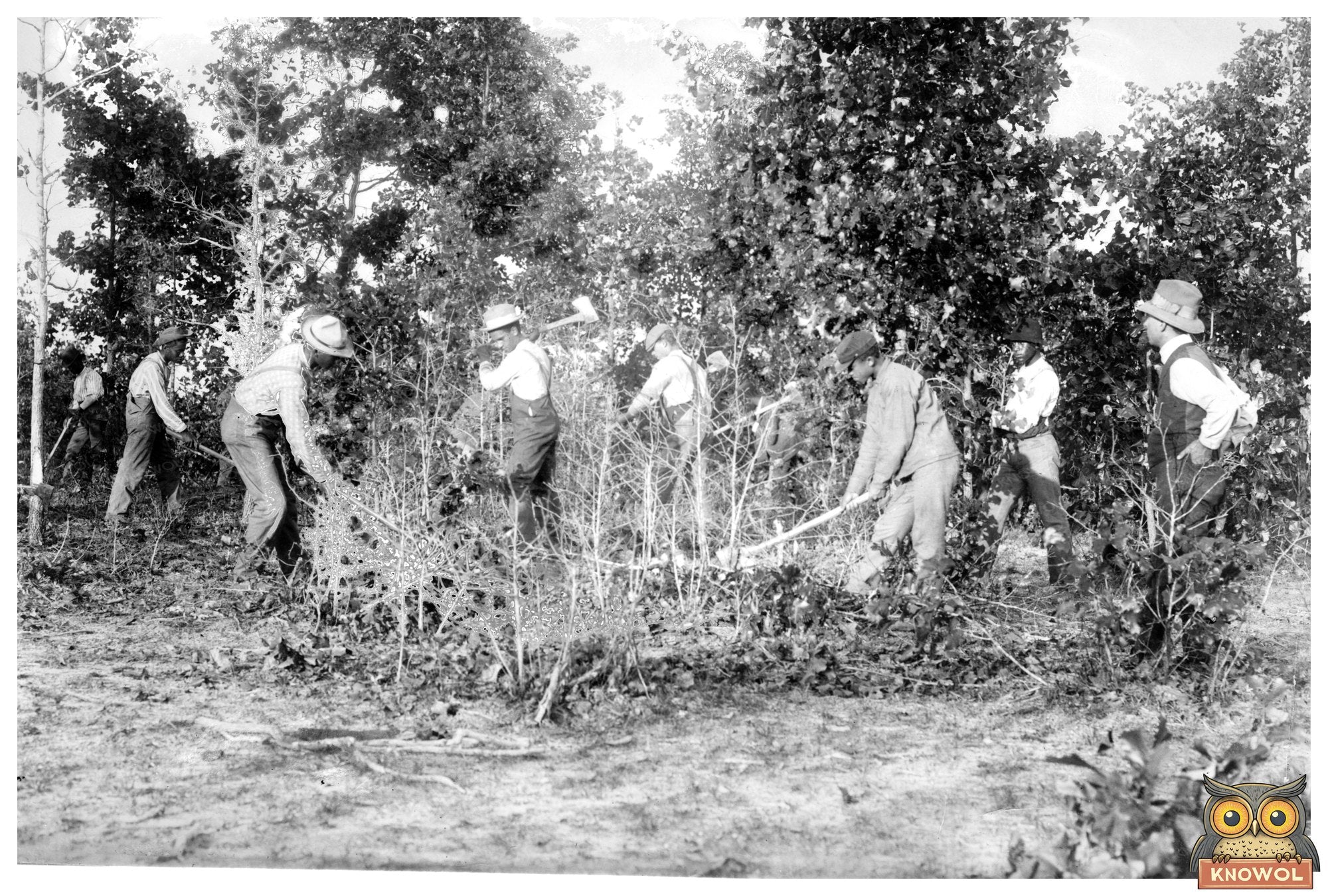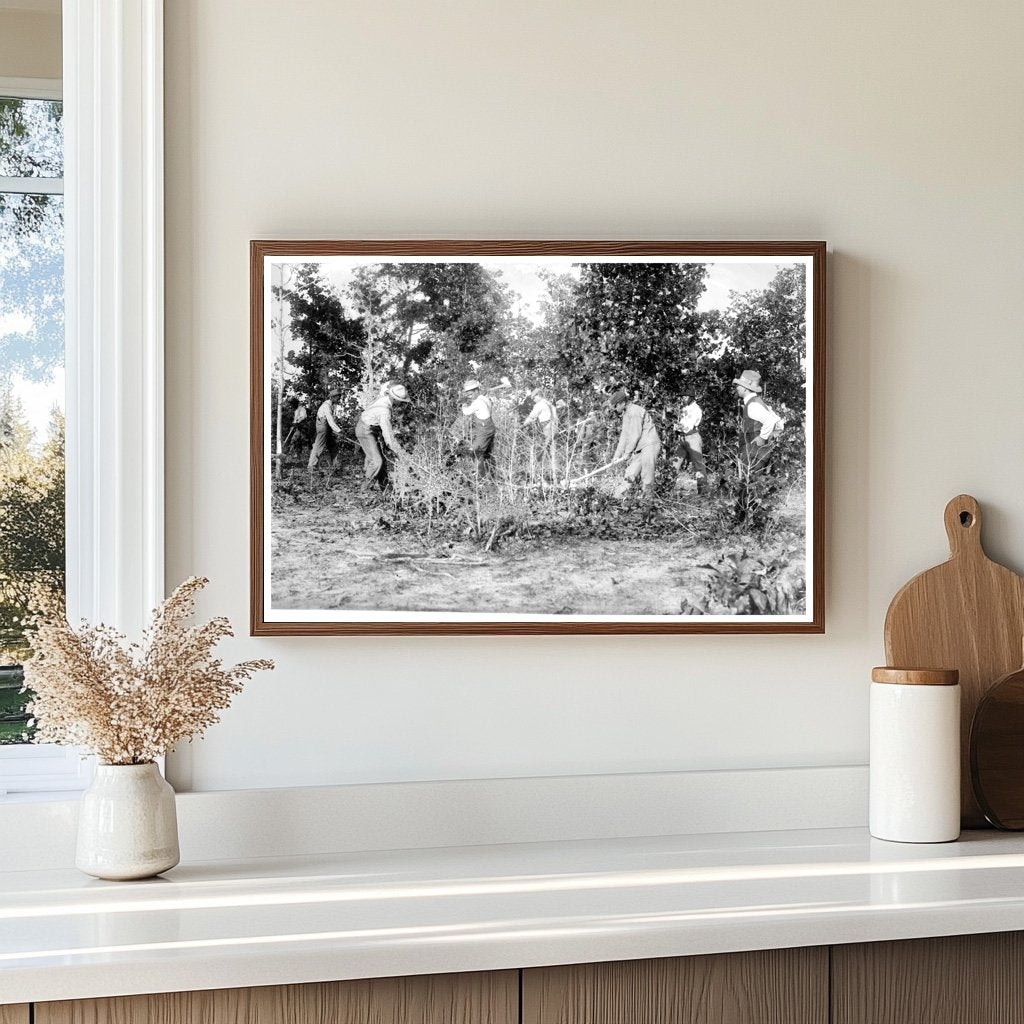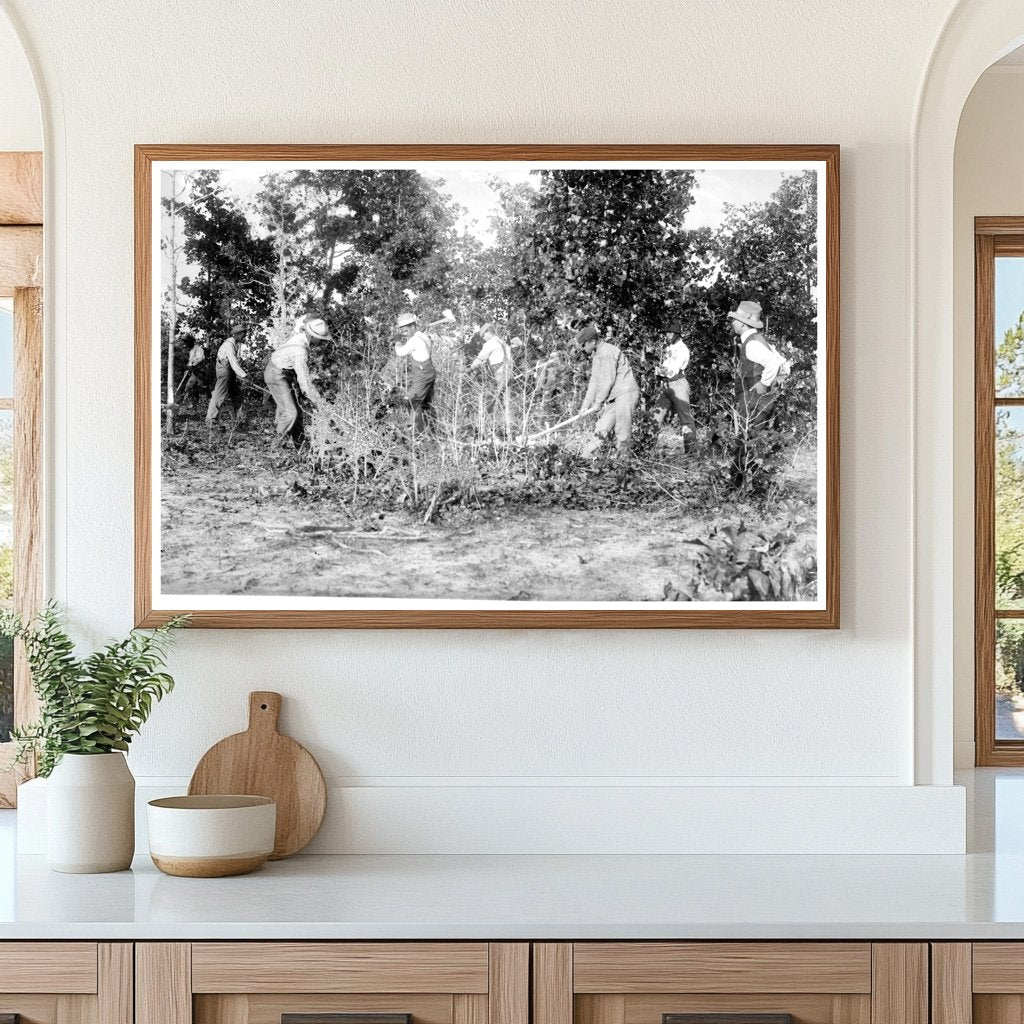


Daily Life in Early 1900s Tuskegee Labor
This photograph, taken in Tuskegee between 1910 and 1915, showcases outdoor labor that reflects the daily lives and hard work of the community. Tuskegee, Alabama, known for its historical significance as the home of the Tuskegee Institute founded by Booker T. Washington, was a vital center for African American education and agricultural development during this era. The image captures a moment in time, highlighting the manual work often undertaken by individuals striving to improve their livelihoods in the post-Reconstruction South.
The outdoor activities depicted in the photograph provide a glimpse into the agricultural practices prevalent in early 20th-century America. This period was marked by a strong emphasis on self-sufficiency and farming as a means of economic survival for many African American families. In Tuskegee, locals engaged in various forms of labor such as farming, woodworking, and domestic tasks, which were critical to their daily existence. This image serves as a valuable historical record, revealing the work ethic and resilience that characterized the lives of these individuals in their pursuit of progress and prosperity.

Daily Life in Early 1900s Tuskegee Labor
